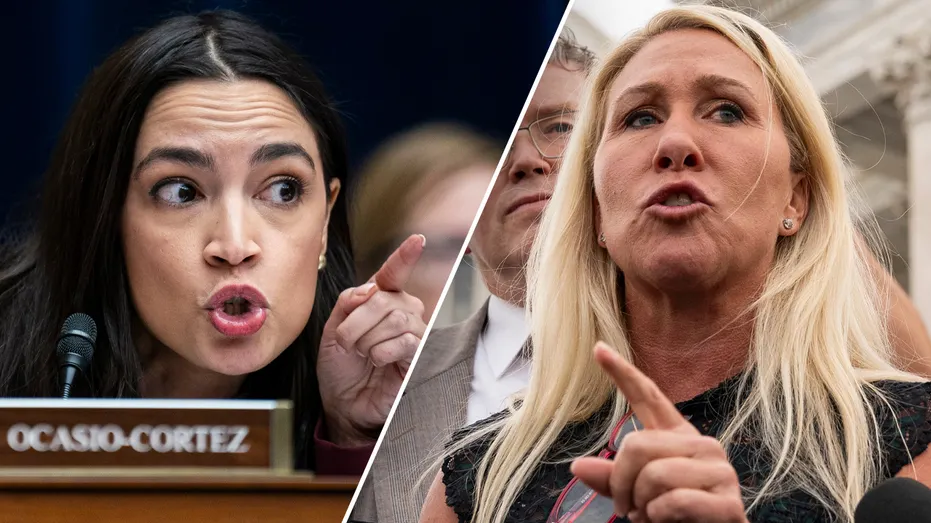

House lawmakers at a Natural Resources oversight subcommittee hearing sparred Tuesday over whether the Department of the Interior allows undue influence by nonprofit activist groups and private companies.
Republicans on the oversight and investigations panel of the committee, led by Chairman Paul Gosar of Arizona, accused DOI Secretary Deb Haaland, of fostering close and potentially improper relationships with “radical” nongovernmental organizations “driving the Biden administration’s extreme environmental agenda.”
Ms. Haaland is expected to testify before the full committee on Wednesday.
“The issue at hand here is twofold. Number one, at their core, most of these groups are fundamentally opposed to congressionally authorized missions of the land management agencies that they seek to influence,” Mr. Gosar said in his opening statement.
He added, “Some of these groups are also influenced by dark money from unfriendly foreign sources like China. We now know that China provides funding for many radical environmental groups.”
Mr. Gosar mentioned the leftwing protest group Code Pink, which advocates for ending fossil fuels and domestic mining as well as leading protests against Israel’s response to the brutal terrorist attack by Hamas on Oct. 7.
He also said the committee is concerned that “radical environmental groups” are currently impacting key decisions and rulemaking at DOI related to resource development, including the Chaco Canyon withdrawal, and the cancellation of the twin metals mineral releases in the Superior National Forest.
He claimed these rules and decisions were a result of Ms. Haaland’s relationship with the Pueblo Action Alliance, a leftist Native American organization that he said Ms. Haaland was involved with prior to joining the Biden administration.
“Before joining the Biden administration, Secretary Haaland was very involved with the PAA and repeatedly advocated for their preservations as policies to withdraw more land in the Chaco Canyon from natural resource development,” Mr. Gosar said.
“There is evidence that she has maintained her close relationship with PAA, while serving as Secretary in addition to her daughter remaining employed to advocate on this issue.”
The top Democrat on the committee Rep. Melanie Stansbury of New Mexico said the accusations against Ms. Haaland amounted to nothing more than a “partisan attack” and “political theater.”
Ms. Stansbury defended Ms. Haaland, a fellow New Mexican, whom she described as the “nation’s very first indigenous Cabinet secretary.”
Ms. Stansbury charged that the DOI was “embroiled in dozens of scandals and ethical violations” during the Trump administration under both its secretaries.
“If we want to talk about influence peddling and criminal behavior, let’s talk about the former president and the culture of influence that he brought not only to the White House, but to the Department of Interior under his tenure,” she said.
“In fact, when you scratch the surface, what you find is that the Trump Interior Department offered unprecedented access to oil and gas, mining and other special interests that resulted in dozens of investigations and criminal referrals.”
The Interior Department refused to comment.
Scott Walter, president of the Capital Research Center; Tyler O’Neil, author of “Making Hate Pay: The Corruption of the Southern Poverty Law Center,” and Richard Painter, S. Walter Richey Professor of Corporate Law at the University of Minnesota Law School, each testified.
Mr. Walter testified about foreign nationals who donate hundreds of millions of dollars to American auper PACs that often end up in the hands of environmental organizations, Mr. Painter called for tightening ethics rules at the Interior Department.
Witnesses from the Wilderness Society and Pueblo Action Alliance declined an invitation to testify.
The committee discussed how the department coordinates with activist organizations and others in such a manner that goes around the Administrative Procedure Act when engaging in the rule-making process.
Formal rulemaking is, according to the statute, “on the record” and requires a trial-type agency hearing. This seldom happens today during the rule-making process, while informal rulemaking, known as “notice and comment,” happens more often.
During an informal process, an agency will study an issue and eventually draft a notice of proposed rulemaking. Later on, the agency drafts a proposed rule that is reviewed internally and then by the Office of Management and Budget and its Office of Information and Regulatory Affairs.
Following the review, the rule is published in the Federal Register to allow for public comment, and federal agencies must then analyze the public comments. The rule is finalized incorporating or otherwise responding to the public’s views.
Committee Republicans want to focus on the “ex parte communication” or oral communications during face-to-face meetings between stakeholders and agency personnel that relate to rulemaking, which are not written comments submitted during the comment period.
Although the APA prohibits “ex parte” communications for formal rulemaking and adjudications, it says nothing about oral communications for informal rulemaking, effectively allowing them.













